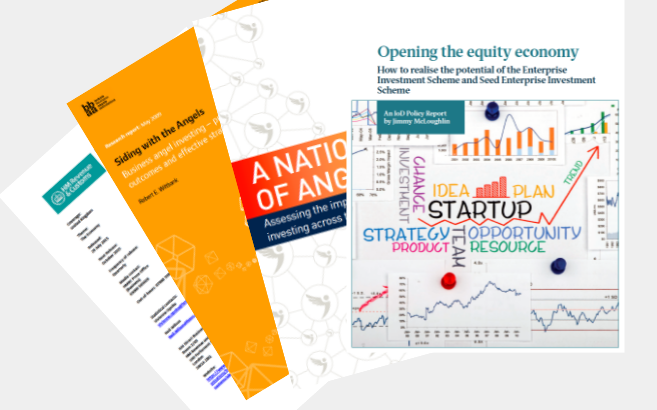I was at an Egroup meeting earlier this month and Marc Loftus from BDO was presenting on the new Innovation Tax Incentive. For information on the Innovation Tax Incentive see my earlier post here. A question came from the floor on the subject of what impact the Innovation tax incentive was likely to have on levels of investment. The UK has a similar Innovation tax incentive called the Enterprise Investment Scheme (EIS). The EIS was highly influential on the new Australian Tax Incentive legislation. I was in Scotland from 2006 to 2009 working in the startup and innovation space. I had a fair bit to do with Scottish Angel investors who I knew were using the EIS. I also remembered reading reports on the impact of the EIS on the levels of investment. So I thought I would dig those up and share them.
The UK government introduced EIS in 1992 with the purpose helping types of small higher risk unlisted companies to raise capital. So there is a fair bit of data available to gauge the impact of that scheme.
What do the UK studies reveal?
The earliest report I have found was produced by NESTA in May 2009. That report entitled “Siding with the Angels Business angel investing – promising outcomes and effective strategies” found that:
“Eighty per cent of investors surveyed have made use of the Enterprise Investment Scheme, at least once. And 57 per cent of their investments had made use of the EIS.”
and
“Investors said that 24 per cent of their investments would not have been made without tax incentives.
In January 2015 the Enterprise Research Centre released a study called “A Nation of Angels: Assessing the impact of angel investing across the UK”. In their report it was stated:
“Almost 9 out of 10 angel investors have invested either through the EIS or the SEIS and around 80% of the total investments in angels’ investment portfolios were made under these schemes with over half (55%) investing in EIS and a quarter (24%) investing in SEIS.”
HM Revenue & Customs in a report from 2015, found that since the EIS was launched, almost 22,900 individual companies have received investment through the scheme and over £12.2 billion of funds had been raised.
Calls for increased promotion of the UK Innovation Tax Incentives
Although the earliest of the schemes has been operational for 22 years there are still calls for greater promotion of the schemes to increase their utilisation. In 2015 by the UK Institute of Directors released a policy report entitled “Opening the equity economy: How to realise the potential of the Enterprise Investment Scheme and Seed Enterprise Investment Scheme”. In that report it was recognised that the schemes were mainly used by investors who have the most to gain from income tax relief and the investment experience to understand the risks. It was suggested that:
“There is no reason this strong base of investors cannot be complemented by a sprawling network of smaller investors, putting a portion of their investment into a company which qualifies for EIS/SEIS. With the UK riding the crest of an entrepreneurial wave, now is the time to capitalise on this appetite for investment and unlock the equity economy to millions of people around the country.”
“Investing in a company should not be the preserve of those who have the time, resources and connections to do so.”
“By encouraging investment in these companies, it drives finance towards them, lowers the risk for investors, and boosts the amount which people are willing to invest.”
and
“The potential to boost the ranks of investors – in all income groups – is huge.”
In the report the Author suggested there was a role for the UK government to help to raise the awareness of the Innovation Tax Incentives amongst businesses, investors, financial advisers, accountants and lawyers.
What will be the impact of the Innovation Tax Incentive in Australia?
Australian Investors are known for their fondness for tax effective investments. Taking this into account and looking at the UK experience I think we can be confident that the new Innovation Tax Incentive will be popular with people who get to know about it. It will most likely deepen the pockets of existing Angel investors. It will add to the ranks of Angel investors. There is also significant potential for an increase in the number of both sophisticated and retail investors who would want to take advantage of the Tax Incentive. Many of these will not fit the usual profile of Angel Investors.
In Australia we have no shortage of entrepreneurs starting businesses who want or need to raise capital. Many of these may be eligible investments under the Innovation Tax Incentives. These Entrepreneurs will be faced with an increased range of places to go to try to raise money including new ways of raising capital. At the same time many new investor will be looking for ways to find and evaluate these opportunities.
Here at Techboard we are working towards facilitating increased investment into Australian Startups and Tech companies. We are also working on increasing access to these investment opportunities. We will be revealing more soon. Sign up so you don’t miss any updates.
